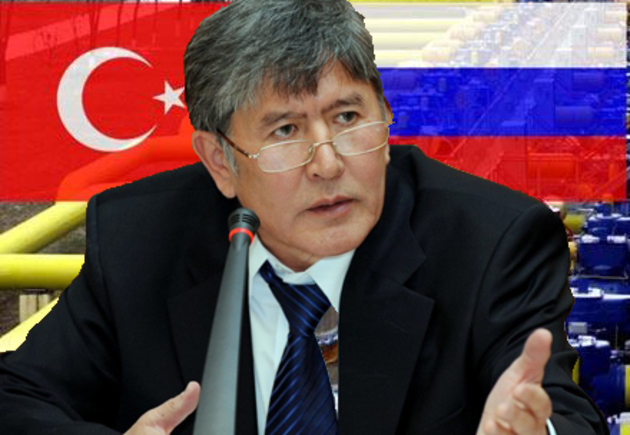The recent statement by Foreign Minister of Turkey Davutoglu disappointed supporters of increased Russian-Turkish ties. Ankara didn’t like the decision of Moscow and Beijing to veto the Security Council resolution on Syria, even though it was understood that Moscow wouldn’t allow a repetition of the Libyan scenario for Damascus. At least Russia would do its best for Assad to resign with minimal loses and avoid Gaddafi’s sad fate.
The disagreement on the Syrian problem is the first clear contradiction between Russia and Turkey, plus the installation of missile defense system elements in Turkey. However, all these facts do not mean that ties are not be coming closer between Moscow and Ankara. Nevertheless, some experts and politicians are sceptical in their assessment of the readiness of the Turkish authorities for “an honest dialogue” with Moscow.
One exception is the President of Kyrgyzstan, Almazbek Atambayev, who in January 2012 made his first official visit to neither Moscow nor Astana. The first country the new president of Kyrgyzstan visited was Turkey. The speech by Atambayev presented at the Turkish parliament in Turkish was an even greater surprise. He presented his country as “the third element, which connects the Turkic and the Slavic worlds,” i.e. Moscow and Ankara in their “exclusive interests in the Central Asian region.”
What does this step by Bishkek mean? Is it an impulsive desire of Atambayev to be a more important figure in the big game, which is being played in Central Asia? Did he act as a mediator between Moscow and Ankara in search of mutual interests not only in Central Asia, but in the regions, where the interests of both countries meet (the South Caucasus, the Caspian region, the Middle East)?
Local experts are rather sceptical. According to them, Atambayev hardly had any agreed plan for comparing notes between the Russian and Turkish authorities. Kyrgyz political scientists think that it was a spontaneous decision by the new president. Nevertheless, Turkish MPs welcomed the President’s speech.
However, the correlation between the Eurasian project for Central Asia and Turkic-Slavic unity is still relevant. In October at the first summit of the Turkic Council this issue was discussed for the first time. Even then many politicians considered Turkic unity and the Eurasian project to be opposite ideas.
At the same time, in Azerbaijan we see greater interest in Turkic-Slavic unity than in the Eurasian Union. That is why there is still no answer to the question of whether a real ideological basis for further improvement of Russian-Turkish relations exists or not. This factor is very important due to the differences in geopolitical landmarks. They wouldn’t lead to complete breaking of beneficial ties if they were based on a firm foundation.
Alexei Vlasov exclusively to VK






